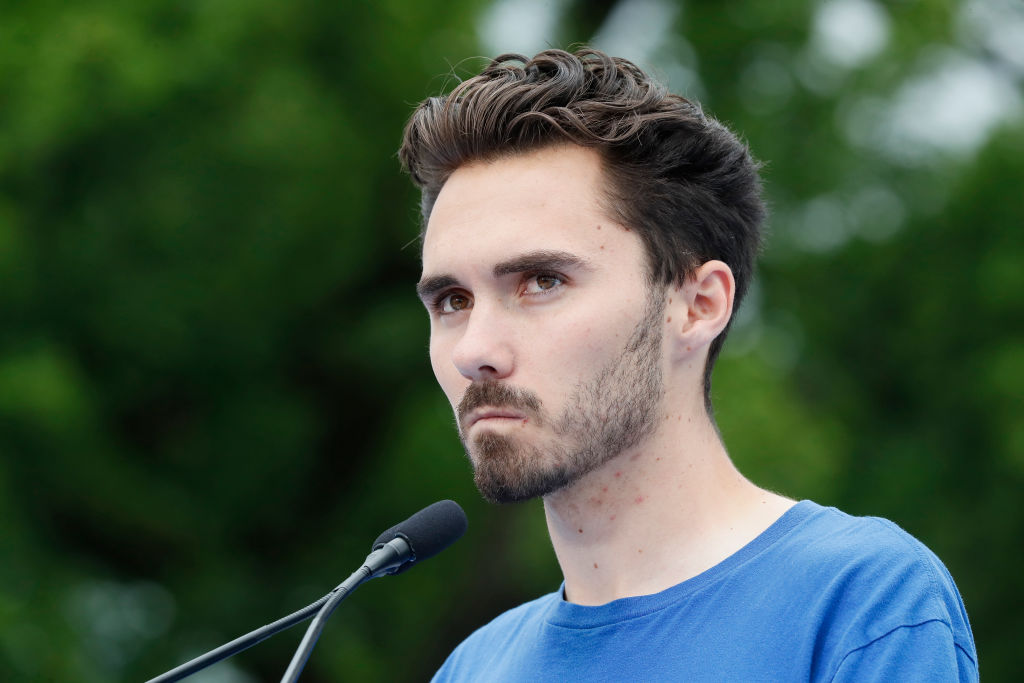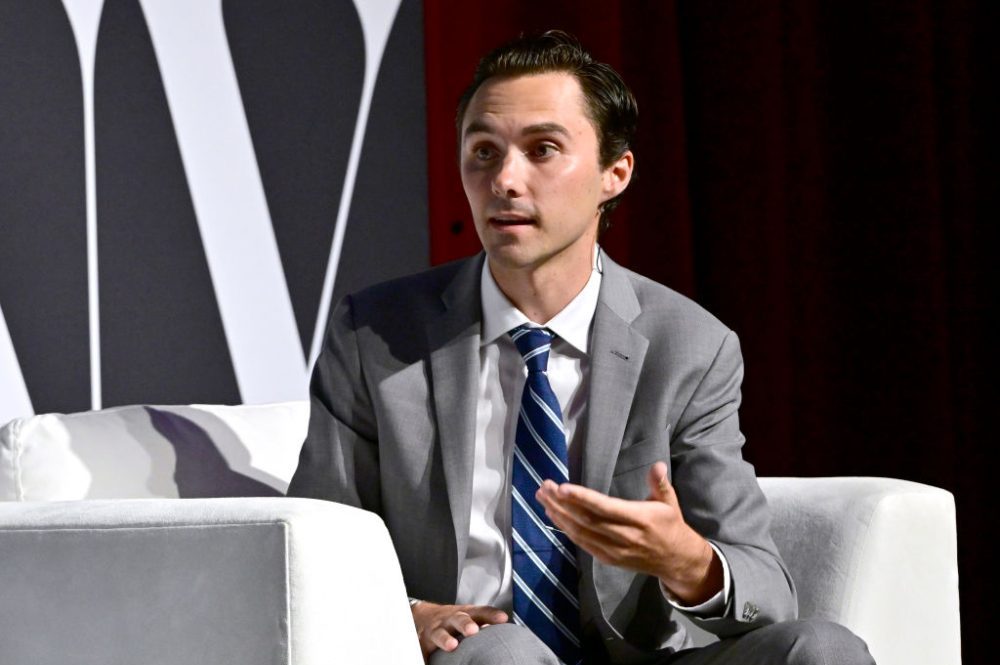Fahrenheit 11/9 is a cheap burger of a film. Michael Moore wedges a thin gristle of protein between two spongy buns. You get the odd kick of mustard, and an occasional wince when the pickle strikes home, but most of the time you’re plowing slowly through an indigestible pabulum, in which the cynicism of the business model is exposed by sloppy assembly and lukewarm taste.
This is too bad, because Michael Moore could have used this film to do his customers a service. Instead, he has actively performed a disservice, by wedging serious concern about the health of American society between two digressive sub-plots, only one of which is handled well. Worse, after zigzagging between the two, he arrives at a historically frivolous and morally corrupt conclusion. The journey isn’t exactly pretty, either.
Fahrenheit 11/9 claims to explain the Trump presidency, and what it augurs for American democracy. Now and then, Moore hits the mark. The opening sequence intercuts footage of Trump’s 2016 campaign with footage of arrogant talking heads, politicians and celebrities laughing at the notion of him winning. Moore indicts the complicity of the cable news stations: NBC had been paying Trump to do his Trump routine on The Apprentice, but now, candidate Trump was giving it for free. Moore also indicts the New York Times, for promoting Hillary Clinton by minimising Occupy, and falsely implying that Bernie Sanders’s supporters were old hippies, not the flower of American youth.
There’s some meaty stuff here, as well as the usual Moore hyperbole. But then we back to 2014 and away to Flint, Michigan. Moore has made a good documentary about the disgraceful poisoning of city’s water supply under Republican governor Rick Snyder, the disgraceful attempt to cover up the poisoning of thousands of residents, many of them African American, and the disgraceful and belated appearance of Barack Obama, who put a glass of Flint water to his lips and announced that it was safe. Moore criticises this ‘stunt’, but then shows us a long and self-indulgent stunt of his own, in which he sprays Flint water onto Rick Snyder’s lawn.
The Flint documentary is intercut with the other side of the bun, on the rot of the Democratic Party in West Virginia. In the 2016 Democratic primaries, Bernie Sanders was chosen as their presidential candidate in all 55 counties of West Virginia. But the Clintonites overruled them at the convention through superdelegates. A result of this disconnect is the West Virginia teachers’ strike of 2018, where teachers on food stamps have to strike in order to preserve their health insurance.
Like the Republicans in Michigan, the Democrats in West Virginia are captives of their donors, and don’t give a damn for the voters. Instead of addressing the truth that Trump was the first candidate in years not to depend on donations from big businesses and banks, Moore offers the populism of the left: muscular unionisation, embodied by ex-vet Richard Ojeda of West Virginia; youth-friendly socialism, embodied by Alexandria Ocasio-Cortez of New York; a socialist rainbow coalition represented by Rashida Tlaib of Michigan; and youth organisation by social media, as evinced by the response of Parkland pupils to the school shooting of 2018.
The American middle class, Moore rightly insists, is not as depraved as its rulers. This is confusing, because Moore also insists that the American middle class has turned fascist by voting for Trump. More confusing, though, is that Moore decries Trump as an American Nazi while using the kind of propaganda techniques that European fascists pioneered. The parallels are explicit. The sound track from Trump addressing a rally is dubbed over footage of Hitler addressing a rally. The burning of the Reichstag in 1933 and Hitler’s takeover of German democracy are explicitly compared to the 9/11 attacks and the Patriot Act. Footage of ICE camps on the southern border are intercut with footage of German soldiers rounding up Jews.
Rather than go for the Big Lie, Moore throws in a lot of little ones. The Weimar constitution was weak, it was set up to prevent one party from taking over, and it lasted only 14 years. The American constitution is strong, and has lasted much longer because it distributes power to produce a balance between democracy and stability. Yet Moore sees no difference.
Moore claims that Trump only ran for president because NBC were paying Gwen Stefani, despite evidence that suggests Trump had always fancied being the most powerful man in the world. Moore calls Trump a racist, and depicts the US Army’s use of rundown areas of Flint for live-fire training as a racially targeted ‘war’ on African Americans. Yet those training exercises happened under Barack Obama’s administration. Moore even makes a long and sordid insinuation that Donald Trump had a paedophilic relationship with his daughter Ivanka when she was a small child.
Two academic historians who should know better give their imprimatur to this cheap and ignorant mob-baiting. Timothy Snyder of Yale tells us that the US only became a democracy in 1970, and tell us that fascism, like a pizza delivery on game night, is always just around the corner. Snyder, at least, seems to have been edited for effect. Ruth Ben-Ghiat of NYU, however goes the whole way, and explains that Trump is a second Hitler.
Neither historian says what they know to be true. Fascism began as a populism of the left. It spread by promising welfare and stability. It washed young brains through the social media of the day, radio in Italy and films in Germany. It took power by cross-hatching with the populism of the right, but by then, its blurring of fact made its origins hard to spot. In his disregard for truth, his manipulation of media, and his dream that tomorrow belongs to a media-enhanced youth crusade against international capital, Michael Moore is closer to the old-time fascists that he might like to think. But there isn’t much thinking going on here.
Dominic Green is Life & Arts Editor of Spectator USA.

























